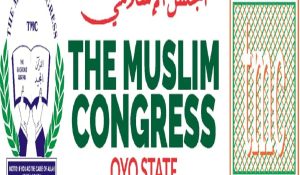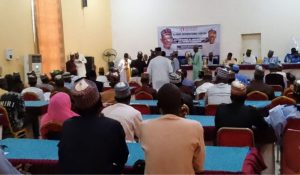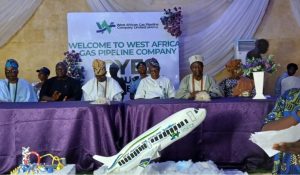
Akanimo Sampson
Nigerian Content Development and Monitoring Board (NCDMB) is currently locked in an intense battle to shake off the “Oil Curse” stigma in the Niger Delta, Nigeria’s vastly polluted oil and gas region.
Over five decades of oil exploration and production has left the people’s of the oil-bearing communities economically worse than they were before Oloibiri, a rustic Ijaw community in Bayelsa State where oil was first discovered in Nigeria in commercial quantity.
Instead of a blessing, the oil industry has left the people with abject poverty, the most polluted region on earth, marginalisation, and repression.
As part of its local content drive, NCDMB has set eyes on raising at least, 40,000 small and medium enterprise tigers by the turn of 2027.
The Decade of Gas is likely to become the Buhari administration legacy initiative to the Niger Delta. The initiative is entering it’s last five years from this coming 2023.
There are huge opportunities for stakeholders, including government of the oil-producing states can tap into to better the lots of the electorate, and assist them in curtailing the rampaging mass poverty in the region.
Besides the traditional nine oil states of Abia, Akwa Ibom, Bayelsa, Cross River, Delta, Edo, Imo, Ondo, and Rivers, Anambra, Enugu, and Bauchi, are bracing to expand the club.
While watchers of the gas decade are hoping that these oil states will make effective use of the windows of opportunities opening to them, NCDMB is pressing ahead with its own unique plan to raise SME Tigers.
With already mid-way into a 10-year Strategic Road Map for enhanced indigenous participation and utilisation of local assets in oil and gas operations, industry regulator NCDMB has recorded a 54 per cent Nigerian content level this outgoing 2022.
Presenting a status report at the 11th Practical Nigerian Content Workshop organised by the Board and DMG Nigeria Events at Uyo, the Akwa Ibom capital, NCDMB’s Executive Secretary, Simbi Kesiye Wabote, an engineer, explains that the average of Nigerian Content performance in the last five years is 44 percent, which represents the period the 10-year Nigerian Content Strategic Roadmap has been implemented so far.
He indicated that the performance in 2022 is well above the 42 percentage target set by the Project Management Office (PMO), just like in 2021 when 42 percent was achieved, above the target of 38 percent.
He confirmed that the tracking of the performance is based on the Board’s monitoring and evaluation of Industry activities.
Strikingly, the technical capability development pillar of the Road Map stands out as a major highlight as fabrication and construction, hitherto under near-total dominance by foreign firms, had 99 per cent Nigerian content during the period under review.
He further disclosed that 77 out of 96 initiatives under the short- and medium-term categories of the Road Map had been completed in November 2022.
He stated that manpower in the oil and gas industry had reached 81 per cent Nigerian content as of November, while project management as of that month was 80 per cent.
Zeroing in on year 2022, he revealed that “performance was largely driven by the contracts awarded under the [Nigerian Liquefied Natural Gas] Train 7 Project.” Low points in accomplishment were in procurement, engineering and services, with Nigerian Content as unimpressive as 34, 46, and 50 per cent respectively. These, he assured, would be sufficiently addressed.
Technical data, cited by Wabote showed the capture of 12 new indigenous operators in the upstream sector of the oil and gas industry, bringing the total to 97. In the service subsector, there were 1,303 new corporate entrants, raising the total to 9,532, while 22,512 individual registrations were recorded, bringing the total to more than 271,000.
Continuing, he informed stakeholders that the Board has commenced the process of “allocation of serviced plots to manufacturers [of equipment components, spares, and tools required in petroleum industry operations] to kick start operations within our NOGAPS [Nigerian Oil and Gas Parks] industrial parks at Emeyal 1, Bayelsa State, and Odukpani in Cross River State,”, assuring that “Construction work is also ongoing at the other NOGAPS parks in Akwa Ibom, Imo, Delta and Ondo States with Edo as the newest addition to the list.”
Wabote expressed the Board’s displeasure at the activities of indigenous oil and gas companies, which seek to undermine its effectiveness after they had benefitted from strategic interventions in funding and capacity building programmes of the organisation. He advised them to turn a new leaf and ensure compliance with regulations or face the consequences.
He commended the Group Managing Director of the Nigerian National Petroleum Company (NNPC) Limited, Mele Kyari, who flew in from Rabat, Morocco, straight to the Conference in Uyo, for his commitment to NCDMB’s local content drive.
In his remarks, the NNPC big boss assured Nigeria that the effort to deepen the utilisation of gas to drive industrialisation and economic development was very much on course. While emphasising the country’s interest in gas as energy transition fuel, he stated that “Gas provides the opportunity to power the global economy.”
Among several projects embarked upon by Government, he cited the multibillion dollar Nigeria-Morocco Trans Saharan Gas Pipeline, which had taken him to Morocco recently. Feedstock for the pipeline, he explained, would be from faraway Brass in Bayelsa. He further assured, “We will complete the OB-3 [East-West pipeline, with a projected capacity of two billion standard cubic feet] pipeline.”
In his welcome address, Governor Udom Emmanuel, who was represented by his deputy, Moses Ekpo, expressed the joy of the people of Akwa Ibom for the opportunity to host the PNC for a second time.
He stated the desire of the state to be considered in plans for oil and gas producing states.
The PNC Conference witnessed paper presentations and panel discussions on the general theme of deepening Nigerian content.
In it’s 10 unbroken years of active participation in the Practical Nigerian Content Forum organised by NCDMB, a leading light of Nigeria’s oil and gas industry, has signified that local content has something of a creedal force in their ranks.
In-country value addition through enhanced local capacities and capabilities remains the unchanging focus – what they must pursue and actualise to enhance the country’s economic performance and development.
The apostolic zeal of the industry stakeholders, as they assemble in their hundreds from year to year to appraise the state of the industry and to determine what way(s) to maximise opportunities along lines spelt out in the Nigerian Oil and Gas Industry Content Development Act, 2010, is most remarkable.
In the spirit of collaboration and stakeholder engagement, issues of topical importance are ever adopted as themes for presentation and deliberations in different editions of the forum.
NCDMB and stakeholders have been guided in subsequent actions by way of interventions, policies and compliance. The board gets more and more innovative as challenges emerge through workshops and exhibitions. Concepts and undertakings such as Nigerian Oil and Gas Technology Hackathon, Nigerian Oil and Gas Opportunity Fair, Nigerian Oil and Gas Industry Content Joint Qualification System, and research and development funding, were in response to felt needs and have bolstered the sector.
Together, the industry regulator and the oil and gas companies – upstream, midstream and downstream – have moved mountains, radically altering the status and image of Nigeria as a rent-seeker and placing her in a respectable position as resource-endowed and with appropriate technological capabilities to efficiently exploit and utilise hydrocarbons.
In 12 years of implementation of the NOGICD Act, 2010, Nigeria, through the board’s well-targeted strategic interventions, has developed the widest range of competencies and facilities for engineering, procurement, fabrication, and a lot else, and thus upped in-country value retention from less than five per cent in 2010 to 46 per cent in the first quarter of 2022. And 70 per cent is in focus as we march towards the 2027 terminal date of the board’s Nigerian Content 10-year Strategic Road Map.
Today the world-class fabrication yards and pipe mills have turned Nigeria into a hub for related businesses in the Gulf of Guinea, just as the country’s service companies now operate as international servicing companies in different African countries. That’s the success story of the NCDMB made possible by far-sighted and resourceful leadership that carries all stakeholders along, unhesitatingly intervening in material terms to bolster the operational capabilities of companies. The forthcoming December 5-8, 2022 PNC Forum will be another platform with great possibilities for participants and the wider society.
Face-to-face with potential clients and investors, participants in PNC Forum 2022 in Uyo, deliberated on the theme, “Deepening Nigerian content opportunities in the decade of gas.”
Key topics, as highlighted at the PNC dedicated website include: Harnessing Nigerian content opportunities for indigenous companies in Nigeria’s decade of gas; what opportunities have been revealed by the seven ministerial regulations for increasing Nigerian content compliance; outlining Nigeria’s future energy mix and Nigerian content objectives over the next 30 years; what are the enablers required to bridge the capacity gap for improved local content implementation with a growing focus on gas?; how can indigenous companies attract required funding?; what efforts are in place to explore Nigerian content opportunities in AfCTA
In the broadest terms, the PNC Forum is conceived “to help shape the Nigerian content agenda for the next 12 months.” Industry regulator and all stakeholders would hopefully be on the same page all the way, directing energies and resources in a manner that would best promote corporate success as well as national development. But economic spin-offs never fail, particularly for a host city and state, in this case, Uyo and Akwa Ibom, whose hospitality industry is already bubbling in anticipation of several hundreds of guests in early December.
PNC Forum 2022 was the place to be for fresh ideas and strategies in the nation’s quest for economic development through effective and efficient management of her abundant hydrocarbon resources, especially gas as the transition fuel for Nigeria, says Esueme Kikile, NCDMB’s Corporate Communications Manager.
In the meantime, NCDMB’s focus is on reducing the high rate of youth unemployment in the oil region. Starting with Bayelsa as a pilot project, the Board has launched a training of 500 youths on mobile phone repairs, software and entrepreneurship development.
The programme is running for eight weeks, including classroom and apprenticeship, after which the trainees will be provided hardware repair tools, shops and financial support by the Board to help them start their careers.
At the kick-off ceremony of the programme in Yenagoa, the Bayelsa capital, Wabote described the initiative as “a strategic intervention between the Board and the Bayelsa State Government.
According to him, “we need to be very strategic in terms of how we create employment.”
The NCDMB boss, who was represented by the General Manager, Research, Statistics & Development, Abdulmalik Halilu, explained that the training is a key initiative under the Technical Capacity Development Pillar of the Nigerian Content 10-year strategic roadmap and the intent is to build the capacities of young Nigerians in oil and gas and ancillary sectors, making them self-reliant and self-employed.
He added that ancillary sectors such as Information and Communication Technology, Agriculture, construction, and others have the capacity to create millions of jobs for young Nigerians. He noted that the GSM phone has become a critical tool for business and education, especially in the e-commerce and knowledge-based economy. He emphasized that the value chain for mobile telephone is extensive, and it includes the production of the phone itself, marketing, and installation of applications. This is because phones develop faults regularly and the owners often become desperate to fix them, hence the relevant skills for repairs and software are most vital.
The training for the 500 youths, he explained, will be in stages. Inauguration and classroom training constitute stage one, with focus on “the fundamentals of a phone – what it is, the anatomy and procedure for fixing phones.”
Stage two is apprenticeship, during which trainees would be attached to Mobile Phone Super Users” who operate standard repair shops. At the end of the training, a competency test is to be conducted by instructors.
In addition to the start-up packs promised, trainees are to receive a stipend of N30,000.00 monthly, and N60,000.00 at exit.
Governor Douye Diri, represented by his Labour, Employment and Productivity Commissioner, Stanley Braboke, commended NCDMB for the initiative and charged the trainees to make the best use of the opportunity. He said the Prosperity Agenda of the current administration in the state places a premium on vocational training and skills acquisition which could make beneficiaries income earners and self-reliant. “Phones are everywhere in Bayelsa State, and they develop faults,” he added.
NCDMB and the sate government are determined that all local government areas should benefit from the youth training programme both in the selection of trainees and in access to mobile phone repair services, he said.
The Board has held similar trainings in some states across country, including Kano, Yobe, Cross River and Bauchi States.









